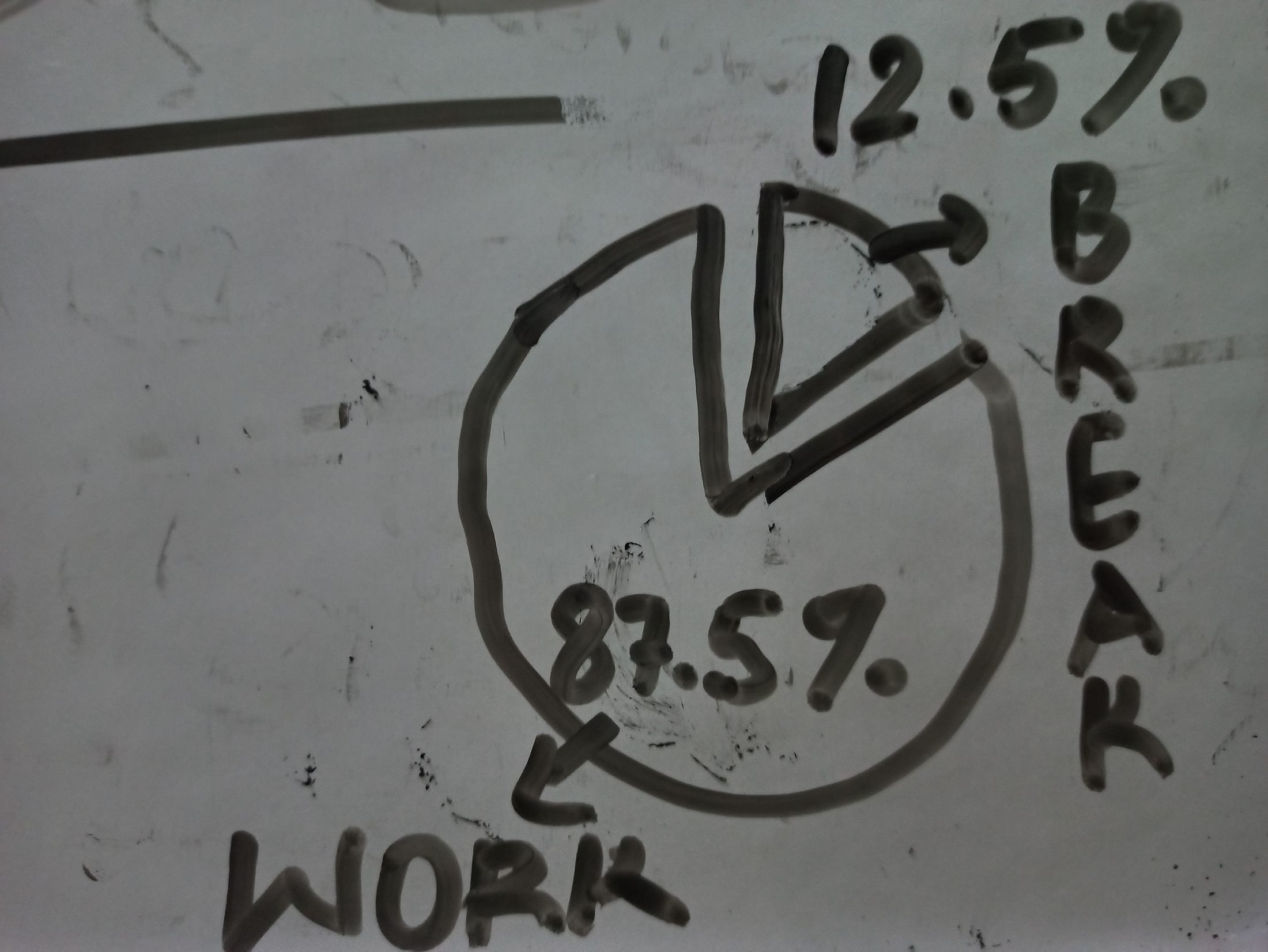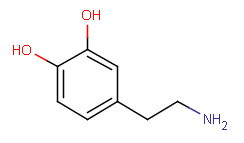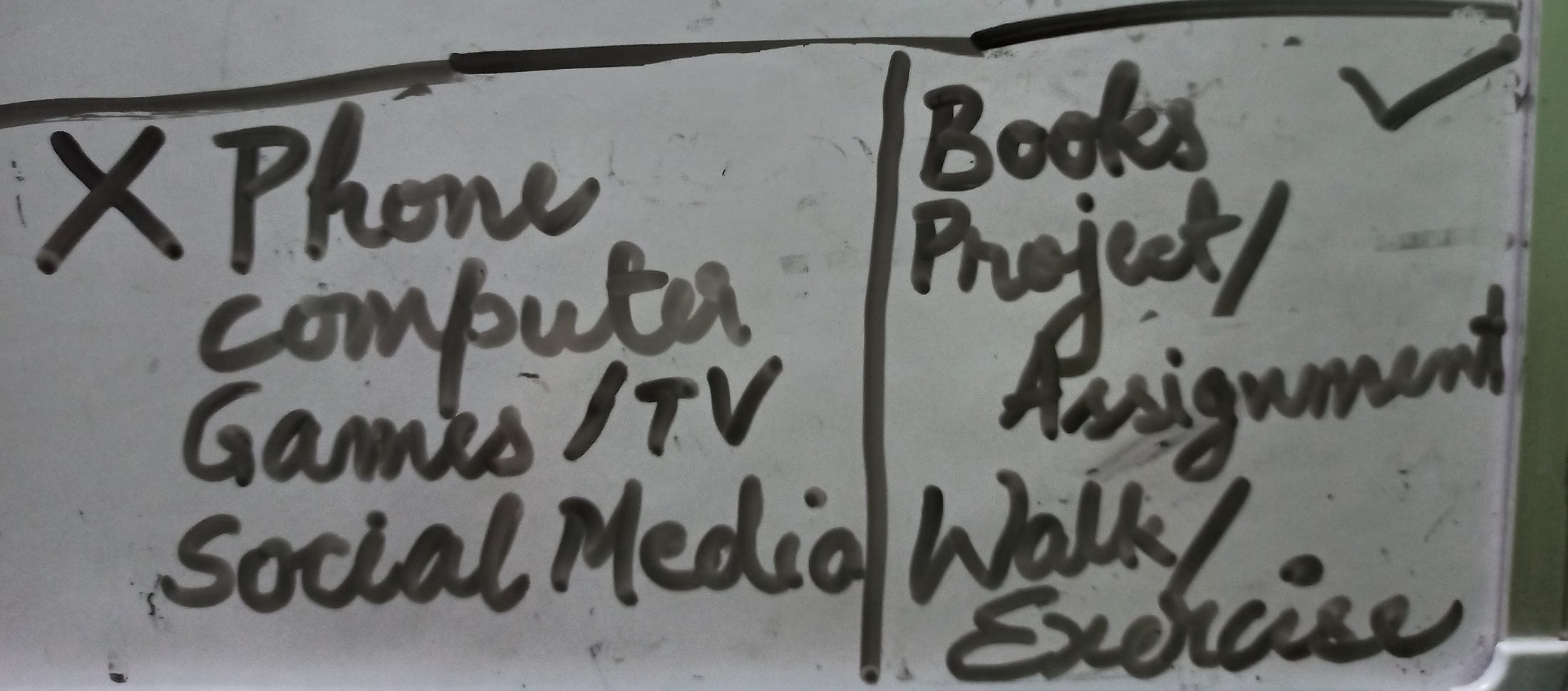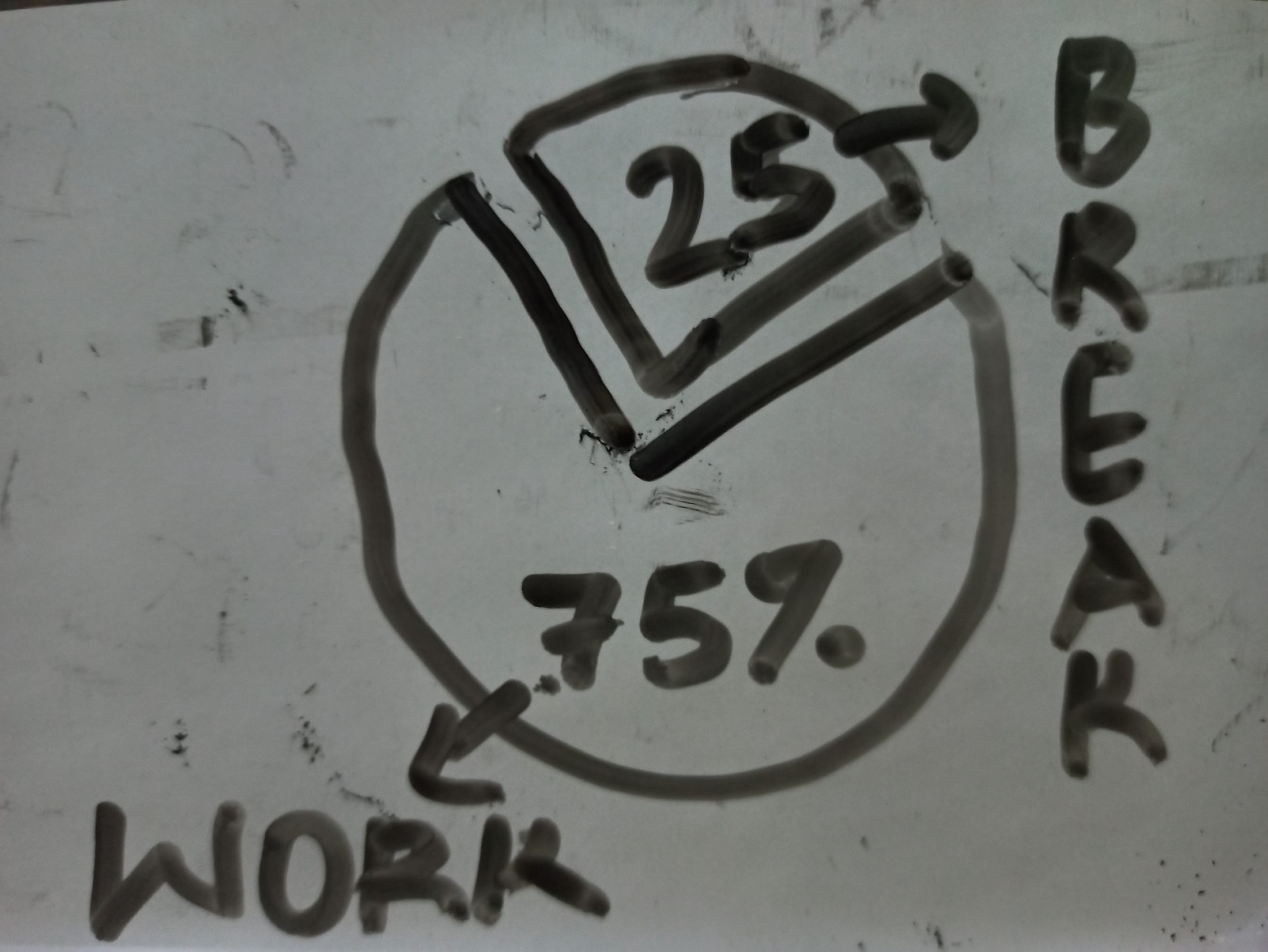How I Improved to become Productive Whole day
Content:
- Difference between being “not productive” and “being productive”
- My own experience during the lockdown
- Thescience behind the solution
- How can you use science and increase your productivity sooner
- Ways to adopt a good habit
More than 6 hours a day I was wasting doing nothing
Why do we like watching videos, playing games, browsing social media?
We can spend more than two hours doing that, even more without breaking concentrations. But while doing work, at every few minutes we want to check our phone. Even though we know that studying, doing a business, homework, exercising, or something equally productive, will bring more benefits in the long run, we still prefer watching videos, playing video games and scrolling through social media.
Why?
Easy to do and doesn’t require much effort, while the other activity is difficult and require you to put some efforts.
But why some people are able to manage to study, work on their business and exercise, regularly.
Why are they able to do? Obviously, they even like to watch movies, play games on phone and scrolling through social media.
So there must be a way, that they follow. Something that keeps them organised with their work as well as their hobbies and taking breaks.
The answer behind all this is very simple.
Before going to that, let’s see how it worked for me.
For the last around 4 years, I was spending most of the time in my college living in a hostel. I only come to my home for 14 days in 6 months, where I don’t study at all, and enjoy my full vacation. In the starting of this year, we were sent back to our home from college. I was totally in a chilled mood to have this surprise vacation in lockdown. But actually this year it wasn’t supposed to be like this. I really had a lot to do. This vacation went too long because of COVID lockdown, and I wasn’t able to use my time at home to be productive. I wasn’t just used to it at home. When we’re supposed to study a lot, we’re doing nothing.
I was only into binge-watching tv shows, painting, cooking, long naps. Gradually I was bored with that too. That's called Dopamine tolerance ( we’ll understand it at later part of this post). I wasn’t even touching my books (other than the 4 hours of online classes), exercising or anything that could make me feel I was productive.
After 3–4 months, I started realising though I m at home, and this isn’t how I should be passing my days. I had planned many things to do this year. And almost 6 months of this year I passed doing nothing.
Before telling you the key behind increasing your concentration for activities which actually benefits you. I’ll just brief you about my routine I have these days, to tell you the difference this key has done to me when I m still home. (Probably next month I’ll be back to college)
 I get up at 5 am exercise for 1 hour. By 7 am around I m done with all my morning chores including breakfast. I study till 9 am, after which I attend my online classes till 3 pm, with 2 hours breaks in between, for the lunch, and for anything, not so productive but I like doing it. Past 4 pm, I study and give some online exams for my practice. In between, I take breaks of 15 minutes every 2 hours.
I get up at 5 am exercise for 1 hour. By 7 am around I m done with all my morning chores including breakfast. I study till 9 am, after which I attend my online classes till 3 pm, with 2 hours breaks in between, for the lunch, and for anything, not so productive but I like doing it. Past 4 pm, I study and give some online exams for my practice. In between, I take breaks of 15 minutes every 2 hours.
After having dinner, I sometimes take a break to do my hobby work and spend some time with my family. I play outside in the evening on weekends( I play basketball, playing sports and doing exercises have its own benefits). So I think it’s good enough for me if I am able to follow this at home after those high dopamine activities. What is this dopamine thing I m repeating?
Understanding the science behind key is Dopamine — Brain Neurotransmitter

Dopamine is considered a pleasure molecule, it makes us desire things. And it is a desire that gives us the motivation to get up and do stuff.
If you aren’t sure how powerful Dopamine is, let me introduce you to a few experiments neuroscientists did on rats.
The researchers implanted electrodes in the brain of rats. Whenever the rat pulled a lever, the researchers stimulated the rat’s reward system in the brain. The result was that the rats developed a craving so strong that they kept pulling the lever, over and over for hours. The rats would refuse to eat or even sleep. They would just keep pressing the lever until they would drop from exhaustion.
But the process was reversed. The researchers blocked the release of dopamine in the brain’s reward centre. As a result, rats became so lethargic that even getting up to get a drink of water was not worth the effort. They wouldn’t eat. They didn’t want to mate. They didn’t crave anything at all.
You could say that the rats lost all will to live. However, if the food was placed directly in their mouths, the rats would still eat and enjoy the food. They just didn’t have the motivation to get up and do it themselves. You’d think that it’s thirst or hunger that motivates us to get food or water. But there’s also dopamine that plays a key role here.
Those rat experiments might be extreme cases. But you can see similar effects dopamine has on humans and in our daily lives. In fact, your brain develops priorities in large part based on how much dopamine it’s expecting to get. If an activity releases too little dopamine, you won’t have much motivation to do it. But if an activity releases a lot of dopamine, you’ll be motivated to repeat it, over and over.
So which behaviour release high dopamine?
Any activity where you anticipate there’s a potential reward releases it. But if you know there are no immediate rewards with the behaviour, your brain won’t release it.
For example, before you eat comfort food, your brain releases dopamine because you anticipate that the food will make you feel good. Even if it actually makes you feel worse. That’s because your brain doesn’t even care if the high Dopamine activity is damaging to you. It just wants more of it. The highest dopamine is released when you get reward randomly.
One such example is paying on a slot machine in a casino. Even if you’ve only been losing money until that point, you eventually expect to get a bigger reward. You just don’t know when it could happen. And in today’s digital society, we are flooding our brain with unnaturally high amounts of dopamine on a daily basis, even if we don’t know it.
Some examples of high Dopamine behaviours include:
- Scrolling through social media websites
- Playing video games
- Watching tv-shows
We anticipate some sort of reward with each one of those behaviours. That’s why we’re constantly checking our phones. We expect to see a text message or some other notifications. And we know that eventually, we’re going to receive it. We’re becoming like those rats pulling the lever, trying to get new dopamine hit.
But how’s it harming me?
Our bodies have a biological system called homeostasis. It means that our body likes to keep internal physical and chemical conditions at a balanced level. Whenever an imbalance occurs are body adapts to it. It’s same as when there’s cold weather outside, our body temperature falls. As a result, we start shivering to generate heat and warm the body. However, when it is hot outside, our body temperature rises. And we start sweating to lose some of that heat. Essentially our body is trying to maintain a temperature of around 37 degrees Celsius or 98 degrees Fahrenheit, no matter what.
But there is another way homeostasis manifests itself. And that is through tolerance.
For example, someone who really drinks alcohol will get drunk really fast. Compared to someone who drinks on a regular basis will have to drink more alcohol because their body has developed a tolerance to it. Essentially it makes them take more and more alcohol to make them drunk because they have become less sensitive to its effects.
Same is with Dopamine.
Your body tries to maintain homeostasis, so it down-regulates your dopamine receptors. Essentially your brain gets used to having high levels of dopamine and those levels become your new normal. Thus you develop a dopamine tolerance. This can be a huge problem, because the things that don’t give you as much dopamine, don’t interest you any longer. And it’s much more difficult to motivate yourself to do them. They feel bored and less fun because they don’t release as much dopamine, compared to the things that do release it in high amounts. That’s why people tend to prefer playing video games, browsing the internet compared to working or studying.
How can we prevent it and improve our productivity?
The simple answer to it is Dopamine detox.
By now might already have an idea what dopamine detox is going to look like.
What you are going to do is set aside a day, where you are going to avoid all the highly dopamine releasing activities. This will stop flooding the brain with high amounts of dopamine and let dopamine receptors recover.
For one whole day, you will try to have a little fun as possible. No internet, phone or computer for fun purposes. Not allowed to listen to music, or eat junk food. Basically to remove all sources of external pleasure for the whole day, and embrace boredom. And trust me, there will be a lot of boredom, but you may go for a walk, meditate, play sports. Do something that reflects on your life and goals. Write down any ideas you get on a piece of paper, avoid phone or computer.

All of these might seem quite intense. But to get radical and faster results, you need to take radical actions.
Does it happen in our daily life?
Yes, for example, when you eat your favourite meal daily in the best restaurant in your city. You wouldn’t like to have plain rice, because your normal is now your favourite meal.
But if you suddenly find yourself stranded on a deserted island and you’re starving, you’d love eating plain rice as well. That’s what the dopamine detox does.
It starves you of all the pleasure you usually get, and in return, it makes those less satisfying activities more desirable.
In simple words, Dopamine detox makes you so bored that even boring works seem fun to you.
An easier way to implement it in daily life
Perform smaller dopamine detox.

Pick one day in a week, where you’re going to refrain from one of your high Dopamine behaviours completely. Whatever that behaviour might be. May be checking your phone all the time, playing video games on your computer, binge-watching tv shows, eating junk food, scrolling through social media, whatever. And from now on, every week for one whole day, avoid that activity. You can still do other things, but the activity you pick is off-limits.
Yes, you’ll feel slightly bored, that’s how it’d work. It will help dopamine receptors to recover from the unnaturally high Dopamine that’s been flooding your brain. And boredom would propel you to do other things that day.
You can do it on an hourly basis as well
By giving you a reward at the end of doing low dopamine-releasing work. Split your hours in a day, make a schedule for your work or study and give a break in between to yourself. You can only do whatever you like during the break when you have utilised your scheduled time for something that actually benefits you in long term. It works by giving you an incentive for your work, which actually doesn’t give you in the short run.

Or you can set a reward for you after completing each hard work. Like after finishing a chapter, or finishing an assignment you can choose to do anything with high Dopamine release. Just always keep reward after performing your work. Because if you do it before, you’d not like doing something with low dopamine release after, there will be no motivation to do it.
Once you aren’t addicted to high Dopamine activities, you can perform your normal, every day, low Dopamine activities, with excitement again.
Dopamine actually motivates to achieve our goals and improve ourselves. But it’s up to us to decide where we’re going to get our dopamine from.
So are you going to get it from things that don’t benefit you? Or from working on your long term goals?





